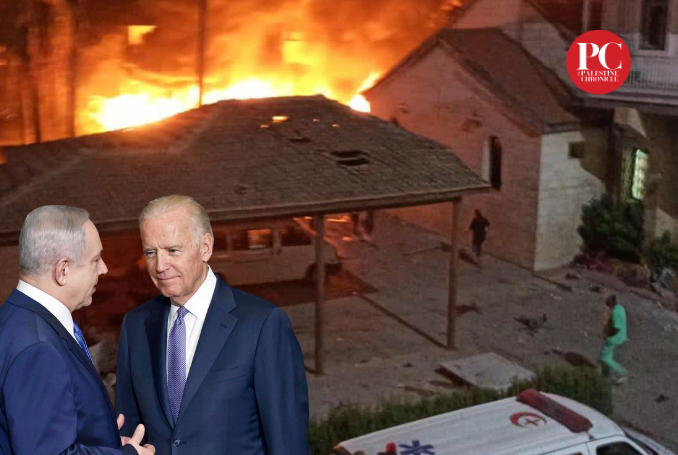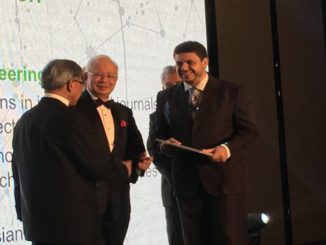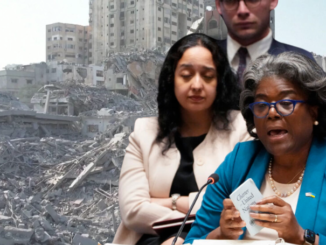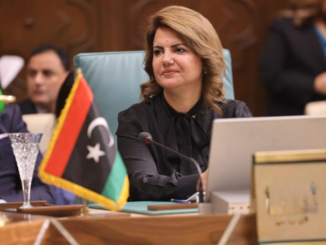
By Benay Blend
To be in solidarity with the oppressed, whoever that might be, means to be wary of sensational media that transforms the victim into a victimizer for the sake of inflaming public opinion.
On the International Day of Solidarity with the Palestinian People, November 29, it is always good to remember what being in solidarity with another group of people really means.
It doesn’t matter that the date might have come and gone before this article appears because solidarity is not something that should be put on and taken off, like a shawl, worn when it’s convenient but put aside when it is not.
Now more than ever it means centering Palestinian voices at all events rather than encouraging others to take the lead. While it’s true that not all Palestinians think alike, most are united under the cause of liberation, writes Ramzy Baroud, a unity that is felt within the homeland and beyond.
Rather than imposing time-worn solutions, opinions about the worth of this strategy or that, it’s a time to listen to what Palestinians envision for their future.
On November 29, Romana Rubeo, managing editor of Palestine Chronicle, observed that some are willing to be in solidarity only when the occupied appear as victims, despite that Palestinians have always “sublimated the pain in the struggle.”
“Even children,” Ramzy Baroud, founder of Palestine Chronicle, observes, “who have lost members of their families in Gaza would stand bravely in front of cameras reiterating that they will never weaken and that nothing would remove them from their homeland. Young and old repeated the same logic, used similar language, even from their hospital beds.”
Finally, it is important not to repeat hasbara (propaganda) that has been rampant on Western media and willfully repeated by heads of state. Shortly after October 7 there was a report of beheaded Israeli babies allegedly left behind by Hamas.
Because I remembered a similar story during Iraq’s invasion of Kuwait, that of babies thrown out of their incubators by Iraqis and left to die, I was wary of the veracity of this report. Though it was soon shown that the rumor was started by an Israeli who had not a shred of evidence, the tale took hold until now it is still repeated by some as fact.
“Despite the history of Israel’s deceit and outright lies,” Jamal Kanj explains, “Western media and leaders continue to second guess the veracity of the narratives from firsthand witnesses on the ground, while eager to adopt the false Israeli version of events.”
More recently, the Washington Post ran a sensational headline alluding to Hamas’s use of “rape as a weapon of War.” The article goes on to paint a picture of barbaric Palestinians who raped and pillaged their way through Israeli villages and towns.
Even though Hamas official Basem Naim explained that such behavior goes against Islamic principles, the Post glossed over his claim.
The report goes on to ignore evidence that it was Israeli soldiers who shot at anything that moved that day, thus bearing part of the burden of the 1200 Israeli deaths.
“A significant number [of people who were killed during the raid] were killed in the crossfire,” writes South African activist Ronnie Kasrils, “many by Israeli guns and bombs. Reports reflect that some of the Israeli soldiers were poorly trained operating in panic-stricken mode.”
It seems that the Zionist regime was projecting onto Palestinians what they themselves have done to women and children held in Israeli prisons, but so far not much has been said about that.
It is true that rape is often weaponized in war situations to dehumanize the enemy, but in this case, it seems to be the reverse. Indeed, in the United States there is a long history of Black men wrongly accused of raping white women, partly to spread fear but also to justify their extrajudicial lynching during the latter 19th and 20th centuries.
In the 1890s, Black crusader and investigative journalist Ida B Wells undertook a massive study that would expose the fraudulent claims that justified the lynching of Black men.
More recently, there was the case of the Central Park Five, young Black and Latino men who were arrested for the brutal rape of a woman in New York’s Central Park. In 1989, a year filled with crime and racial tension, the public saw what it was primed to see, and the media played on those fears by sensationalizing the case.
“Confirmation bias is defined by the individual tendency to accept only what supports their pre-existing biased view,” notes Jamal Kanj. This applies to Western media today regarding Palestine, and to its coverage of what Hillary Clinton called “superpredators,” Black children who she said where involved in drugs and gangs.
Today there is the documentary When They See Us that chronicles events through exoneration. Nevertheless, these five men lost years behind bars because the media and public officials were quick to play on the public’s fears.
Today, the media along with various world governments are using that same technique to equate the Palestinian resistance with terrorism. As with previous cases, the irresponsible language of sensationalism and perverted truth has consequences.
In a memorandum, Palestinian Americans in Chicago blame the media and public officials for the murder of six-year-old Wadea Al-Fayoume. On October 15, the boy was brutally stabbed twenty-six times by a racist assailant who believed that “all Muslims must die.”
Previously, Chicago City Council person Debra Silverstein had introduced a resolution which called to mind racist stereotypes related to Palestinians, including
“unsubstantiated Israeli disinformation about the events of October 7 from pro-Israel speakers, repeating racist tropes about Arabs – of systemic sexual violence against women, the systemic slaughter of children, beheadings – which the Israeli army and White House have since refused to verify.”
According to Ameera Al-Beituni and Noor Hassan, these racist tropes inspired the killer of Al-Fayoume to commit the brutal crime, calling to mind how racist images of Black men led to their public lynching.
One day after the Washington Post published unsubstantiated claims that that Hamas had committed sexual violence against “Israeli” women on Oct 7, the headlines carried a different story. Three Palestinian students had been shot in the liberal state of Vermont, home of Bernie Sanders.
Cause and effect? Most likely, but police say that they have not yet found a clear motive for the shooting. Why else would anyone calmly shoot three Palestinian men speaking Arabic, wearing kufiyahs, other than hatred inflamed by the media?
“It’s important to recognize that this is part of a larger story. This hideous crime did not happen in a vacuum,” says Hisham Awartini, the most seriously wounded of the victims. “As much as I appreciate every single one of you here today, I am one casualty in this much wider conflict.”
Indeed, Basil Awartini, cousin of Hisham, suggests in this very article that the shooting was a consequence of “dangerous and dehumanizing rhetoric regurgitated by US politicians and right wing pundits.” Yet elsewhere in the same piece the Post charges that Hamas murdered 1200 Israelis on October 7, even though there is growing evidence that “Israel” killed some of its own citizens on that day.
To be in solidarity with the oppressed, whoever that might be, means to be wary of sensational media that transforms the victim into victimizer for the sake of inflaming public opinion. It’s not hard to recognize the stereotypes as well as instances in the past where the same misinformation has been used to justify the use of violence against other human beings.
“We should stand in solidarity with the Palestinian people,” Rubeo concludes, “who resist, fight, cry for their children and smile if a prisoner is released. With the Palestinian people repelling the invader and occupier every day, in many ways.”

– Benay Blend earned her doctorate in American Studies from the University of New Mexico. Her scholarly works include Douglas Vakoch and Sam Mickey, Eds. (2017), “’Neither Homeland Nor Exile are Words’: ‘Situated Knowledge’ in the Works of Palestinian and Native American Writers”. She contributed this article to The Palestine Chronicle.







